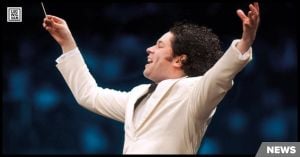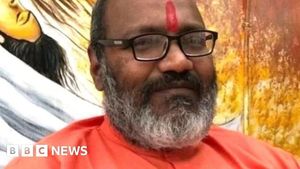Moritz Bleibtreu, revered as one of Germany's leading actors, has shared some candid reflections on the generational divide, particularly emphasizing the necessity of fostering better mutual respect between the younger and older generations. Recently, he opened up about his thoughts during an interview, highlighting what he perceives as a growing intolerance among younger folks toward the views of the elderly.
At 52, Bleibtreu expressed concern over the emotional debates surrounding gender issues today, stating, "I miss any sense of proportion." He elaborated by saying these discussions sometimes lack the nuance required to appreciate different perspectives, particularly from those who have lived through different eras. "There are people from another age who might find this strange, and we should respect this," he urged. His statements resonate deeply, reflecting his desire for dialogue rather than combat when discussing sensitive societal matters.
Bleibtreu categorically does not want to be labeled just as another "old white man". He acknowledges the rapid changes occurring within society and the challenge of adapting to these evolving norms and values. Yet, he also finds it tough to fully embrace some of the new ideologies and lifestyles emerging, sometimes saying, "Ah, this is how it’s done today, okay, if you say so." This openness shows his willingness to engage with contemporary dialogues, even if some aspects feel foreign or uncomfortable.
Interestingly enough, he touched on the changing dynamics of parenthood and child-rearing. Reflecting on his experiences, he acknowledged how parenting norms have morphed, largely influenced by commercial motivations surrounding parental fears and insecurities. "The fact it’s made such a big deal today likely relates to living in a society where everything, even parenting anxieties, gets monetized. It’s lucrative, after all," Bleibtreu noted, sounding somewhat critical of the commercialization of parenting.
Bleibtreu reminisced about his time living in Italy two decades ago, where the attitude toward children seemed less formalized and more integrated. For him, having children was as natural as something trivial like coughing. He said, “That’s why I love societies where children are integrated seamlessly. Back then, children were part of everyday life; they were just there, like anyone else. It felt quite normal.” His affection for these more communal lifestyles indicates how he longs for environments where children are accepted as integral members of society instead of being isolated or confined.
His comments also hint at his personal upbringing. Born in Munich and raised within the sphere of actors—some may argue it’s unconventional—he expressed how he often yearned for stability and structure typical of bourgeois life. "I found my mother's unconventional lifestyle disturbing,” he admitted. Nevertheless, now, as he navigates fatherhood himself, Bleibtreu appreciates the contrasting perspectives he was exposed to growing up. This dichotomy, shaped by his varied experiences, informs his decisions as he raises his children. He emphatically stated, “Now I can choose what to take from both worlds.” This attitude promotes thoughtful parenting derived from blending traditional values with contemporary insights.
Bleibtreu's views should serve as astute reminders of the richness different generations can bring to social discourse. He mentioned the European Union's multifaceted society, hinting at the value of incorporating the perspectives of older generations during contemporary debates. This diversity, he believes, strengthens discussions and promotes communal growth, especially when it involves matters as sensitive as child-rearing and gender identity.
His straightforward yet respectful call for better mutual tolerance and respect could pave the way for reconciliation between youth and their elders. Engaging conversations could create pathways to better understand the motivations behind opposing views.
Bleibtreu's words reflect not only personal introspection but also the broader societal shifts impacting how we interact and perceive each other across generations. By paving avenues of communication, he believes society can cultivate greater empathy and find balance amid diversity.



